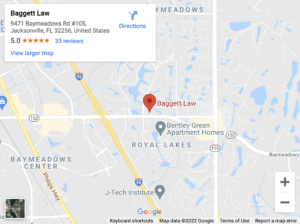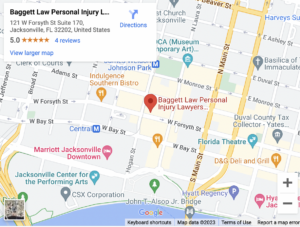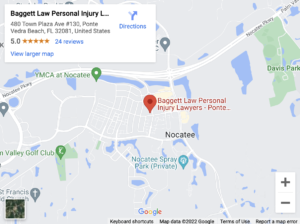
Oil rig work is one of the most dangerous professions in the world. Workers face unique risks every day, from the harsh conditions of offshore rigs to the heavy machinery they operate. Oil rig injuries can lead to long-term disabilities or even death. In Florida, oil rig injuries are governed by both federal and state laws, and workers who are injured on the job have certain rights and legal options for seeking compensation.
If you’ve been injured while working on an oil rig, understanding your rights under Florida law is crucial to ensuring you receive the compensation you deserve. This article explains the common causes of oil rig injuries, your legal options, and how an experienced attorney can help.
Common Causes of Oil Rig Injuries

Oil rigs, whether offshore or onshore, are dangerous places to work. Workers are often exposed to extreme temperatures, loud noises, hazardous materials, and heavy equipment. Some of the most common causes of oil rig injuries include:
- Falls: Oil rigs are often located on large, elevated platforms, and workers frequently move across ladders, catwalks, and scaffolding. Falls are one of the leading causes of injury, especially if safety equipment fails or if surfaces are slippery.
- Explosions and fires: The presence of highly flammable materials, such as natural gas and oil, makes explosions and fires a significant hazard. These accidents can result in catastrophic injuries, including severe burns, traumatic brain injuries, and even death.
- Machinery accidents: Workers on oil rigs operate heavy machinery, such as drills, pumps, and cranes. Malfunctioning equipment, failure to follow safety protocols, or lack of proper training can lead to accidents involving crushing injuries, amputations, or electrocution.
- Chemical exposure: Oil rig workers are often exposed to hazardous chemicals such as hydrogen sulfide, benzene, and drilling fluids. Prolonged exposure to these chemicals can cause respiratory issues, chemical burns, and even long-term illnesses like cancer.
- Transportation accidents: Workers are often transported to and from oil rigs via helicopters or boats. Accidents during these modes of transportation, such as crashes or sinking, can result in severe injuries or fatalities.
- Poor Safety standards: Inadequate safety measures and failure to comply with industry regulations can also contribute to accidents.
Employers have an obligation to maintain a safe working environment, such as providing necessary safety equipment or making sure not to neglect routine maintenance, among other things.
Legal Rights and Compensation for Oil Rig Injuries in Florida
If you’ve been injured on an oil rig in Florida, you may be entitled to money damages through workers’ compensation, maritime law, or a personal injury lawsuit. Your rights and options depend on various factors, including where the injury occurred and the nature of your employment.
Workers’ Compensation Claims
Florida’s workers’ compensation laws provide benefits for employees who are injured while on the job. However, workers’ compensation laws typically apply to land-based oil rig workers or those working in Florida’s jurisdiction. Under Florida law, workers’ compensation is a no-fault system, which means you do not have to prove that your employer was negligent to receive benefits.
Benefits available through workers’ compensation may include:
- Medical benefits: Coverage for the costs of medical treatment related to your injury.
- Disability benefits: Financial compensation if your injury prevents you from returning to work temporarily or permanently.
- Vocational rehabilitation: Assistance if you are unable to return to your previous job due to the severity of your injuries.
Florida workers’ compensation law requires that most employers provide coverage for their employees. However, certain types of workers, like independent contractors, may not be covered under the state’s workers’ compensation system.
Jones Act Claims
If your injury occurred while working offshore or on an oil rig in navigable waters, you may be eligible for compensation under the Jones Act, a federal law designed to protect maritime workers. The Jones Act provides greater benefits than workers’ compensation, including:
- Damages for pain and suffering: Under the Jones Act, you can recover damages for physical and emotional pain caused by the injury.
- Lost wages: You may be entitled to compensation for lost wages due to your injury.
- Future medical expenses: If your injury results in long-term medical needs, the Jones Act provides compensation for ongoing care.
The Jones Act requires that you prove your employer was at least partially responsible for your injury, whether through negligence or unsafe working conditions.
Longshore and Harbor Workers’ Compensation Act (LHWCA)
The Longshore and Harbor Workers’ Compensation Act (LHWCA) is another federal law that provides benefits for workers injured in the course of their maritime work. The LHWCA applies to workers who are involved in loading and unloading ships, as well as other maritime activities, such as working on oil rigs.
Workers covered by the LHWCA are entitled to compensation for medical treatment, lost wages, and vocational rehabilitation, just like those covered under Florida’s workers’ compensation system.
What To Do After an Oil Rig Injury in Florida
If you’ve been injured while working on an oil rig, taking the following steps is essential to protect your health and legal rights:
- Seek immediate medical attention: Even if your injuries seem minor, it’s important to see a doctor to document your injuries. Medical records will be crucial if you need to file a claim or lawsuit later.
- Report the injury: Notify your employer as soon as possible after the accident. Failure to report the injury in a timely manner could affect your ability to file a workers’ compensation or legal claim.
- Document the incident: Gather as much information as possible about the incident, including photographs of the scene, names of witnesses, and any other relevant details.
- Consult a personal injury attorney: A lawyer with experience in oil rig injury cases can help you understand your options, whether through workers’ compensation, the Jones Act, or a personal injury lawsuit.
A lawyer can also help gather evidence, handle communication with your employer and insurance companies, and ensure you meet all deadlines.
Contact a Jacksonville Personal Injury Lawyer for a Free Case Review
In the Jacksonville, Florida, area, oil rig injuries are serious, and the legal process can be complicated. Whether your case falls under Florida’s workers’ compensation system, personal injury law, or federal maritime law, it’s crucial to understand your rights and options.
Contact the law office of Bagget Law Personal Injury Lawyers to ensure that your case is handled efficiently and effectively, allowing you to focus on your recovery. Call (904) 396-1100 for a free consultation today.




